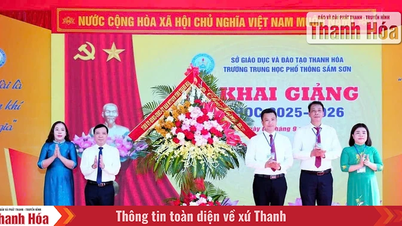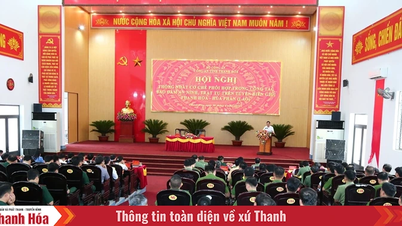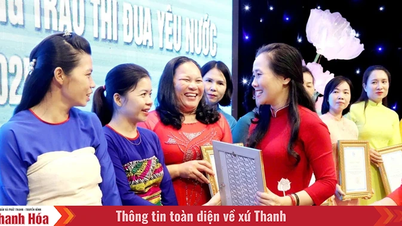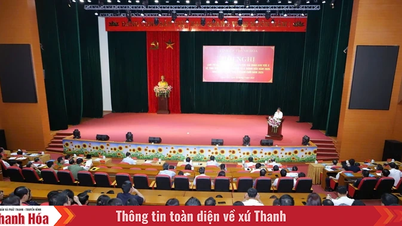Additional assessment of the age required to issue an ID card
At the 25th session, the National Assembly Standing Committee (NASC) gave opinions on explaining, accepting and revising the draft Law on Citizen Identification (amended).
Reporting on a number of major contents explaining, accepting and revising the draft Law on Citizen Identification (amended), Chairman of the National Defense and Security Committee Le Tan Toi said that through studying the opinions of National Assembly deputies, the examining agency has accepted and revised many important contents on the name, scope of regulation and subjects of application of the draft Law; identity certificates and management of people of Vietnamese origin;
Citizen information in the national population database and information in the identification database; content shown on the identification card; people issued identification cards; integration of information into identification cards; issuance and management of electronic identification cards.

Chairman of the National Defense and Security Committee Le Tan Toi.
Regarding the content shown on the ID card, the Chairman of the National Defense and Security Committee said that with the expansion and integration of more information into the ID card, the information on the card and the information integrated into the card is not simply basic information of the citizen as before. Therefore, renaming the card will ensure more comprehensiveness.
At the same time, changing the name of the citizen identification card to the ID card will not affect the State budget expenditure, social costs, and will not greatly affect transactions and people's psychology.
For those who are issued ID cards, according to Mr. Le Tan Toi, current technology can collect fingerprints of people aged 5 and older, ensuring the requirement of biometric data matching. In addition, the law on immigration is implementing the issuance of passports and visas for newborn children, with facial photos taken.
Although the ID card does not replace the birth certificate, it can integrate more information according to people's needs, saving costs for the state and people in issuing and using these types of documents.
In this draft law, the drafting agency will aim to provide many solutions and utilities to serve citizens under 14 years old on the basis of using chip-embedded ID cards;
In the long term, further research and evaluation will be conducted on the mandatory age for ID cards to suit practical requirements and ensure feasibility, serve state management well, and promote the value and utility of ID cards in promoting digital government and digital society.
Clarify the advantages and disadvantages of each option
Commenting at the meeting, National Assembly Chairman Vuong Dinh Hue said that there are still different opinions on the name of the draft law. Based on the opinions of National Assembly deputies, it is necessary to clarify the advantages and disadvantages of each option to ensure a comprehensive and objective view, report to the Politburo , and consult with specialized National Assembly deputies before submitting it to the National Assembly for consideration and decision.
The National Assembly Chairman said that the draft law needs to clarify what a person of Vietnamese origin is. Regardless of the name of the law, the provisions on implementation should still stipulate that there must be documents/cards similar to citizen identification cards, temporarily issued to people of Vietnamese origin.
The inspection agency needs to coordinate more closely and actively with the Ministry of Public Security and relevant agencies to more fully absorb the opinions of National Assembly deputies on a number of contents to ensure more persuasiveness.

National Assembly Chairman Vuong Dinh Hue spoke at the meeting.
Concerned about citizens' information in the National Population Database and information in the Identity Database, the National Assembly Chairman suggested that there should be a clear explanation about the necessity of providing personal information, including information on blood type, mobile phone number, email address, biometric information, facial photos, etc.
According to the draft law, information on DNA and voice will be collected when people voluntarily provide it. The National Assembly Chairman said that it is necessary to review provisions in other laws to ensure consistency with this principle.
Along with that, the draft law also stipulates that, in the process of handling a case according to its assigned functions and tasks, the prosecution agency and the agency managing the person subject to administrative handling measures that conducts an appraisal or collects biometric information on DNA and voice of an individual who is a Vietnamese citizen and a person of Vietnamese origin, shall share that information and data with the identity management agency to update the identity database.
According to the National Assembly Chairman, this provision is inconsistent with the above-mentioned voluntary principle, so it is necessary to review the draft law as a whole, ensuring that the provisions are consistent, unified, and free of contradictions and overlaps.
The National Assembly Chairman also stated that it is necessary to clearly separate the type of information that must be collected to be included in the citizen identification card from the type of information that citizens voluntarily provide to the citizen identification database .
Source


![[Photo] Solemn opening of the 12th Military Party Congress for the 2025-2030 term](https://vphoto.vietnam.vn/thumb/1200x675/vietnam/resource/IMAGE/2025/9/30/2cd383b3130d41a1a4b5ace0d5eb989d)
![[Photo] Panorama of the cable-stayed bridge, the final bottleneck of the Ben Luc-Long Thanh expressway](https://vphoto.vietnam.vn/thumb/1200x675/vietnam/resource/IMAGE/2025/9/30/391fdf21025541d6b2f092e49a17243f)
![[Photo] General Secretary To Lam, Secretary of the Central Military Commission attends the 12th Party Congress of the Army](https://vphoto.vietnam.vn/thumb/1200x675/vietnam/resource/IMAGE/2025/9/30/9b63aaa37ddb472ead84e3870a8ae825)

![[Photo] President Luong Cuong receives President of the Cuban National Assembly Esteban Lazo Hernandez](https://vphoto.vietnam.vn/thumb/1200x675/vietnam/resource/IMAGE/2025/9/30/4d38932911c24f6ea1936252bd5427fa)
![[Photo] The 1st Congress of Phu Tho Provincial Party Committee, term 2025-2030](https://vphoto.vietnam.vn/thumb/1200x675/vietnam/resource/IMAGE/2025/9/30/1507da06216649bba8a1ce6251816820)
































































































Comment (0)